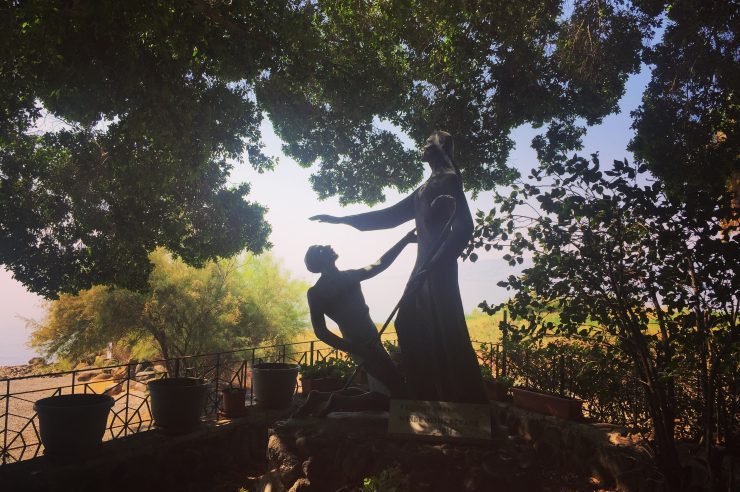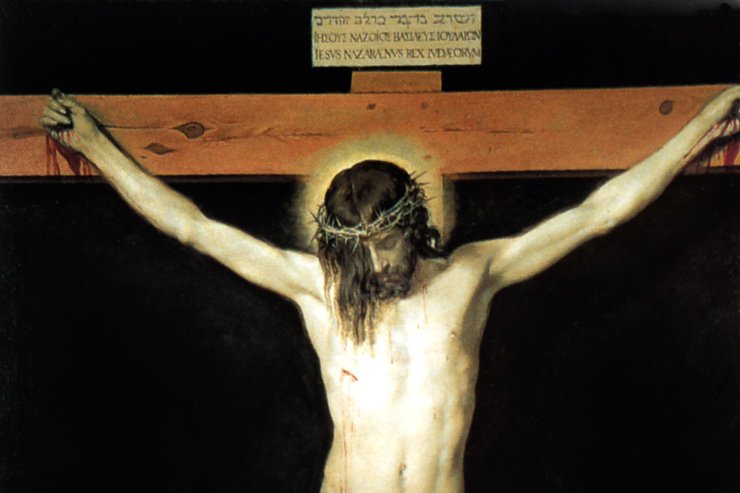“We place limits on God’s mercy that he does not, whether because we want to see others receive justice or because we feel unworthy of his love.”
In the octave of Easter, the Church simultaneously celebrates the Divine Mercy novena. This wasn’t the idea of the Church, but the request of Jesus. “I desire that the First Sunday after Easter be the Feast of Mercy” (Diary 299). He asked that the feast be preceded by a novena that would grant great graces – “By this novena, I will grant every possible grace to souls” (Diary 796). The Feast of Divine Mercy was purposely linked to Good Friday – the day we call good precisely because of the mercy poured out on us that day – and Easter.
In the midst of this novena, the readings of Mass present to us one of the greatest stories of mercy in Scripture: the life of Peter. The Friday of the first week of Easter gives us the post-resurrection story of Jesus reconfirming Peter’s mission. Take time to read the stories of Peter’s denial (Luke 22:54-62) and Jesus’ forgiveness (John 21:15-19). This is mercy. Jesus looked at Peter with love that night in the courtyard of the high priest, ready to forgive him. And Peter accepted that love that morning on the Sea of Galilee.
Was Peter’s mission taken away from him because he denied Christ? On the contrary. Christ emphasized three times that Peter was to continue the mission he had been given. This experience probably made Peter a better Pope. It must have humbled him. He could now better minister to his brothers and sisters and help them with their repentance since he had received mercy himself. It is always good for a confessor and/or spiritual leader to have knowledge of the weakness of humanity and the mercy of God.
The life of a Christian means a life of metanoia or change. We must never be content to remain in our sins. But at the same time, we must never forget that God is always ready to forgive. At times, it may be difficult to accept God’s mercy for ourselves or others. We place limits on God’s mercy that he does not, whether because we want to see others receive justice or because we feel unworthy of his love. Perhaps we see an enemy come back to God on his deathbed and we feel that same bitterness of the older brother of the prodigal son. Maybe we have temptations to be like Job, who didn’t want to preach to Nineveh because he didn’t want to see them spared.
Or maybe we have a hard time accepting God’s mercy for ourselves. Perhaps we feel we’ve done too much or strayed too far. Perhaps the consequences of sin still feel too raw and the wounds are still too fresh, and they prevent us from believe God is merciful. He is still here, waiting to welcome you back when you have the courage to come.
Mercy is always connected to repentance, conversion, and sanctification. True mercy does not allow us to remain where we are: true mercy forgives and then calls us higher. God is demanding. He calls us to be perfect (Mt 5:48). But this extreme demand is met with extreme mercy. If we emphasize the demand without the mercy, we make God a tyrant. If we emphasize mercy without the demand, he becomes a God who is just there to indulge you, never calls you to spiritual greatness. Neither of these extremes are the biblical God.
Celebrate this novena of mercy, remembering that the consequence of sin is death – but on that day we call good, Christ defeated death. That Easter Sunday, he opened the way for us to follow him home.
“The Church, that is holy, does not reject sinners; she does not reject us all; she does not reject because she calls everyone, welcomes them, is open even to those furthest from her, she calls everyone to allow themselves to be enfolded by the mercy, the tenderness and the forgiveness of the Father, who offers everyone the possibility of meeting him, of journeying toward sanctity. ‘Well! Father, I am a sinner, I have tremendous sins, how can I possibly feel part of the Church?’ Dear brother, dear sister, this is exactly what the Lord wants, that you say to him: ‘Lord, here I am, with my sins.’ Is one of you here without sin? Anyone? No one, not one of us. We all carry our sins with us. But the Lord wants to hear us say to him: ‘Forgive me, help me to walk, change my heart!’ And the Lord can change your heart.”
-Pope Francis (General Audience on October 2, 2013).
Please share this post on Facebook and other social media below:















